ASTROBEAT proposes for the first time the investigation of the cold-welding phenomenon for use in spacecraft hull repair following a hypervelocity impact by space debris. An experimental test rig will be tested and qualified, at TRL 6, on the International Space Station, thanks to an environment providing for an extended period of time micro-gravity conditions.
The project is led by Dr Leonardo Barilaro, Senior Lecturer in Aerospace Engineering a MCAST – The Malta College of Arts, Science and Technology.
It has been shown that similar metallic materials can fuse or weld at ambient temperatures provided that there are sufficiently high contact forces. In the Space environment, this fusion is aided by the fact that the joint surfaces do not re-oxide after wear and, as a consequence, atomic diffusion of the metal occurs at lower contact forces. Cold-welding in the Space environment was first analyzed in the 1960s as an adverse reaction from wear and it was attributed to be the cause of failure of certain mechanisms. This research, however, will investigate the potential of cold-welding for use in spacecraft hull perforation repair.
Spacecraft shield and hull perforation may occur after a hypervelocity impact due to micrometeoroids or space debris. In-situ repair from inside the vehicle is preferable due to the pressure differences. Evaluating a paradigm shift in cold-welding adhesion, this project aims at developing a test apparatus to apply custom repair patches and will investigate its adhesion properties. The recovery of the payload will allow further metallurgical analysis of the cold-welded joint.
After the terrestrial development and validation using a vacuum chamber (first phase), the core activity is the design and testing of the experimental setup and its integration as a payload to carry out the activity onboard the International Space Station. The test rig will be able to simulate the hull breach in terms of crack and opening and will be capable of applying the repair patch and monitoring its performance (second phase).
Dr Leonardo Barilaro is also coordinating the Space Art project that will send new music onboard the International Space Station. The main feature of this initiative is its interdisciplinary approach, utilizing music as a powerful language to transcend cultural barriers and reach diverse audiences beyond formal education systems.
The Department of Aviation at the Malta College of Arts, Science & Technology (MCAST) and the Aerospace, Mechanical and Electronic Department at South East Technological University (SETU) will collaborate with the Centre of Studies and Activities for Space (CISAS) “G. Colombo” of the University of Padova and the Skyup Academy, Italy for the second phase of this research project. Moreover, MCAST started a prestigious collaboration with NYU Abu Dhabi (NYUAD), facilitated by H.E. Ambassador of Malta in UAE, Madam Maria Camilleri Calleja.
The MCAST team is composed of Mark Spiteri, Steve Buhagiar and Luke Falzon. The SETU team includes Dr Mark Wylie, co-author of the idea of using cold-welding adhesion in Space, and Theeba Shafeeg.
ASTROBEAT (SUP-2023-09) is a EUR 125,000 project financed by Xjenza Malta through the Space Upstream Programme.
The International Space Station payload opportunity is being made available by Nanoracks, through its Space Act Agreement with NASA’s U.S. National Lab.
MUSIC from SPACE
Dr Leonardo Barilaro, known as the Space Pianist, is also coordinating the “Space Art” project that will send new music compositions to the International Space Station.
To further amplify the project’s impact, Dr Barilaro secured the participation of Grammy-nominated cellist and composer Tina Guo and world-renowned producer Steve Mazzaro. Notably, Tina Guo and Steve Mazzaro have been collaborating for several years with Hans Zimmer, the legendary composer who created, just to mention a few examples, iconic scores like Interstellar, Dune and Inception. Their involvement in ASTROBEAT significantly enhances the project’s public outreach potential both at a national and international level. With them, Leonardo created “Moon Seeds”, the soundtrack for the ASTROBEAT project. “Moon Seeds” and another experimental composition of him, “Black Sun”, were recorded at NYUAD Arts Center‘s state-of-the-art facilities, under the guidance of Prof. Matteo Marciano, leader of the student label Gazelien Records.
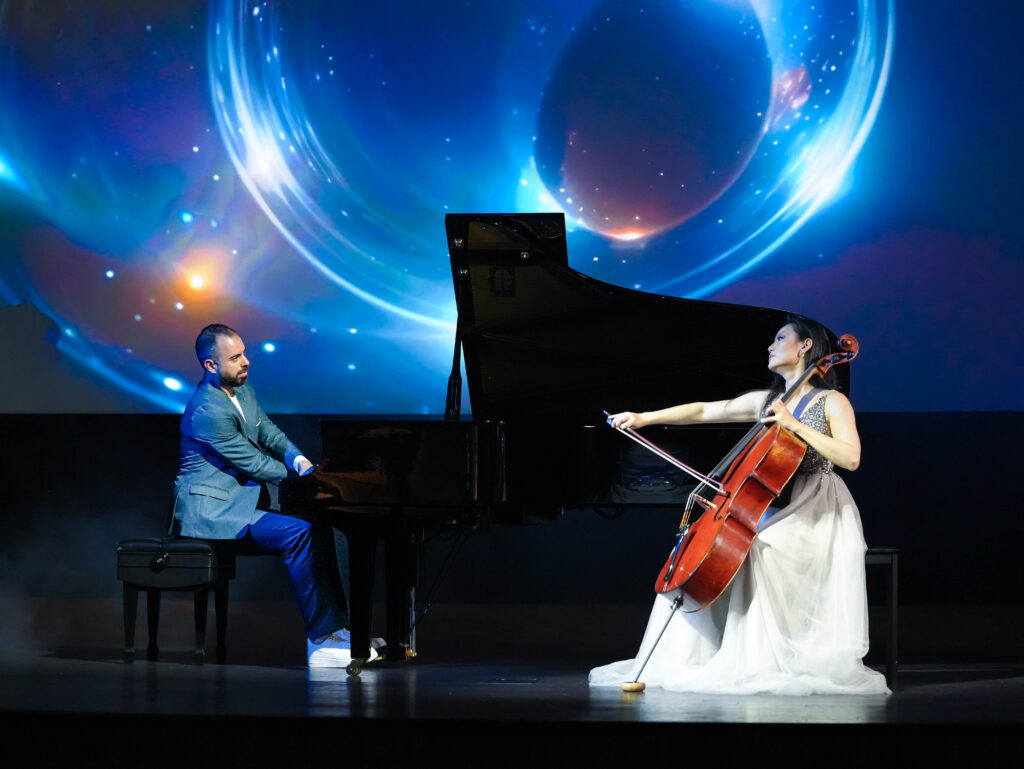
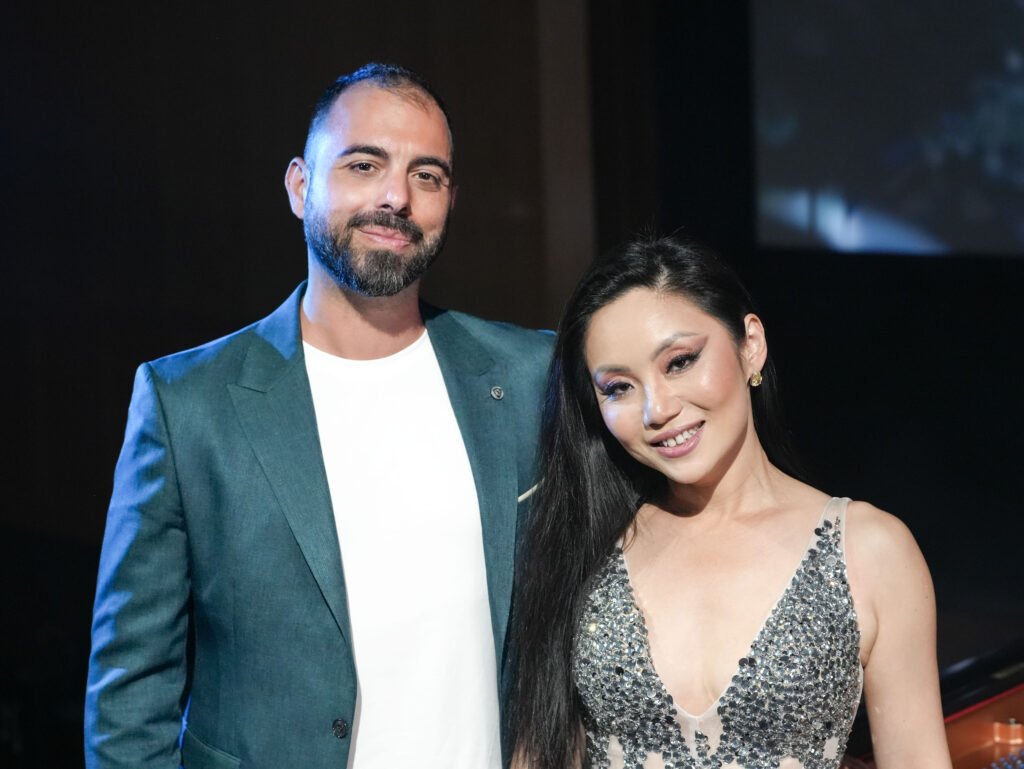
Leonardo Barilaro with Grammy-nominated cellist Tina Guo on the set of ‘Moon Seeds’
Collaboration with NYUAD
Dr. Leonardo Barilaro meeting with NYUAD Provost Prof. Arlie Petters and Prof. Andrea Macciò, Director of the NYUAD Center for Astrophysics and Space Science, to discuss the ASTROBEAT experiment and ‘Music from Space’ project.
The prestigious collaboration between MCAST and NYU Abu Dhabi (NYUAD) was initiated and is supported by the Director of the Center for Astrophysics and Space Science, Prof. Andrea Macciò. His Center will collaborate MCAST in the post-flight data analysis.
Dr. Leonardo Barilaro meeting with NYUAD Provost Prof. Arlie Petters and Prof. Andrea Macciò, Director of the NYUAD Center for Astrophysics and Space Science, to discuss the ASTROBEAT experiment and ‘Music from Space’ project.
Moreover, NYUAD Arts and Humanities Division, under the guidance of Prof. Carlos Guedes, is collaborating with MCAST and Dr Leonardo Barilaro on the project “Music from Space”, connected to the ASTROBEAT mission.
This initiative aims to send new music composed by NYUAD students to the International Space Station, merging artistic expression with space exploration. The two students have been selected through a music contest, with the judges panel featuring Tina Guo, Steve Mazzaro alongside Dr Barilaro, Prof. Guedes and Prof. Marciano.
Onboard the experiment, there will be also a suite composed by Prof. Guedes that will boost further the value of the research in the field.

NYUAD sees this as an opportunity to showcase student talent and inspire scientific curiosity, while MCAST leverages Dr Barilaro’s expertise in Space Art through his involvement in the previous Maleth program, which streamed twice music from Low Earth Orbit.
The concept of “Music from Space” serves as a platform to transcend cultural barriers, bringing people together globally, while advocating for sustainability and the role of space exploration in addressing environmental challenges on Earth. The project has garnered global interest and was presented at prestigious events, emphasizing the impact of the collaboration between science and art on a broader audience.
Dr Leonardo Barilaro was also invited to hold a space music seminar for the Recording and Production Techniques students by Prof. Matteo Marciano.

ASTROBEAT team at MCAST - From left to right: Luke Falzon, Leonardo Barilaro, Mark Spiteri, Steve Buhagiar
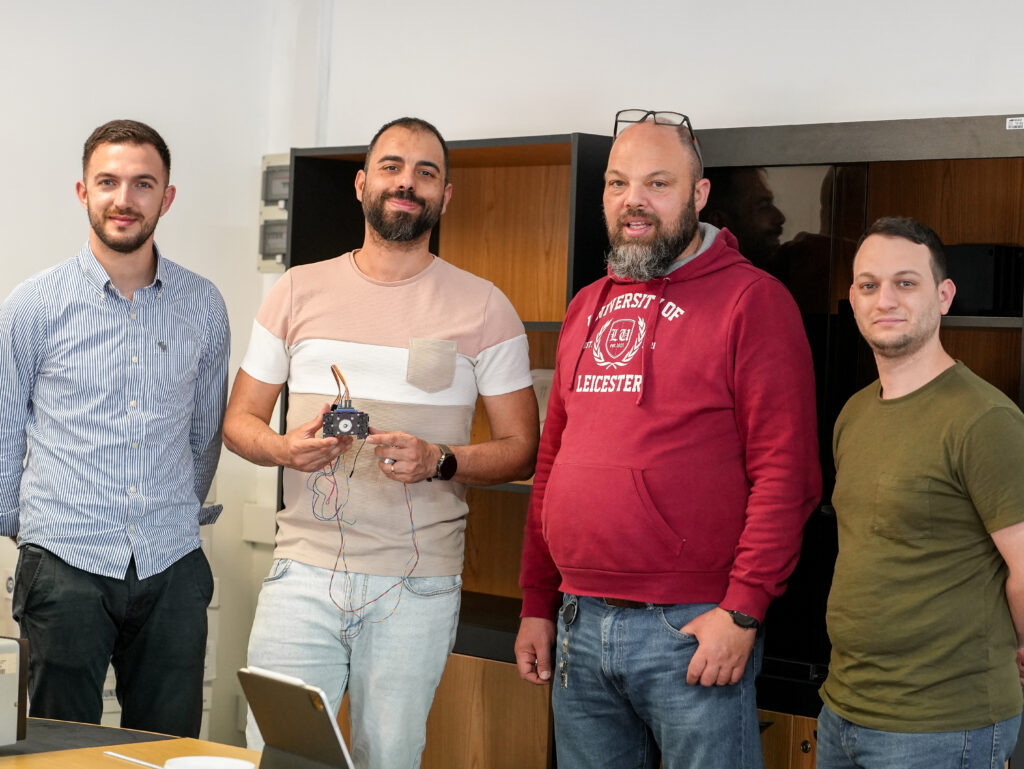
ASTROBEAT
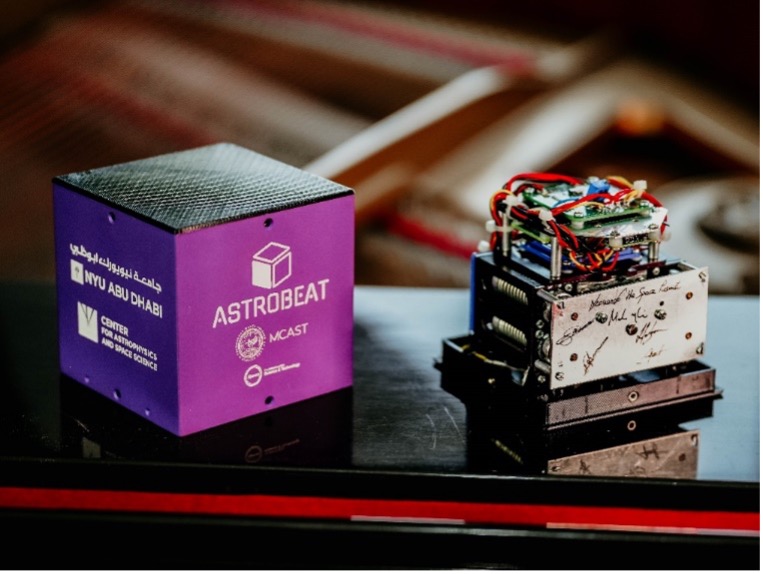
ASTROBEAT functional tests at Nanoracks facilities in Houston (USA) and Dr Barilaro at NASA Space Center
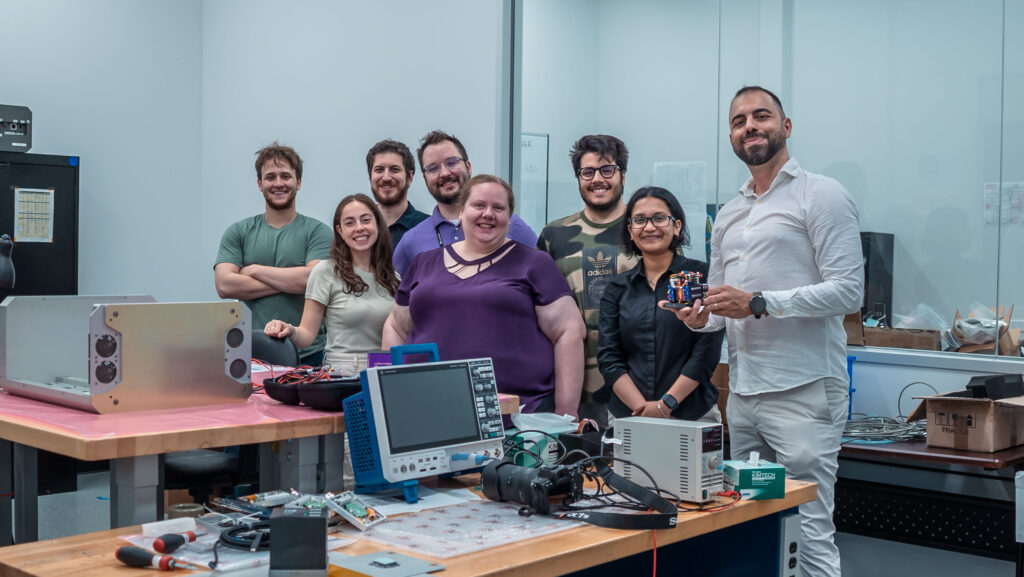

Dr Leonardo Barilaro with ASTROBEAT at Nanoracks in Houston
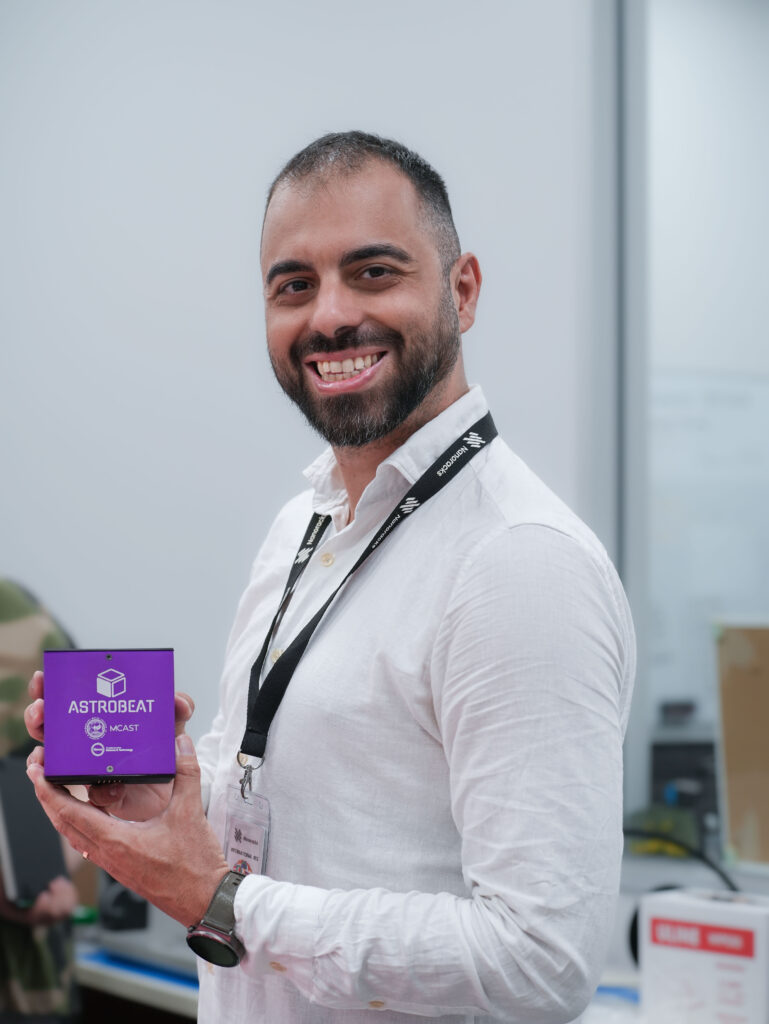
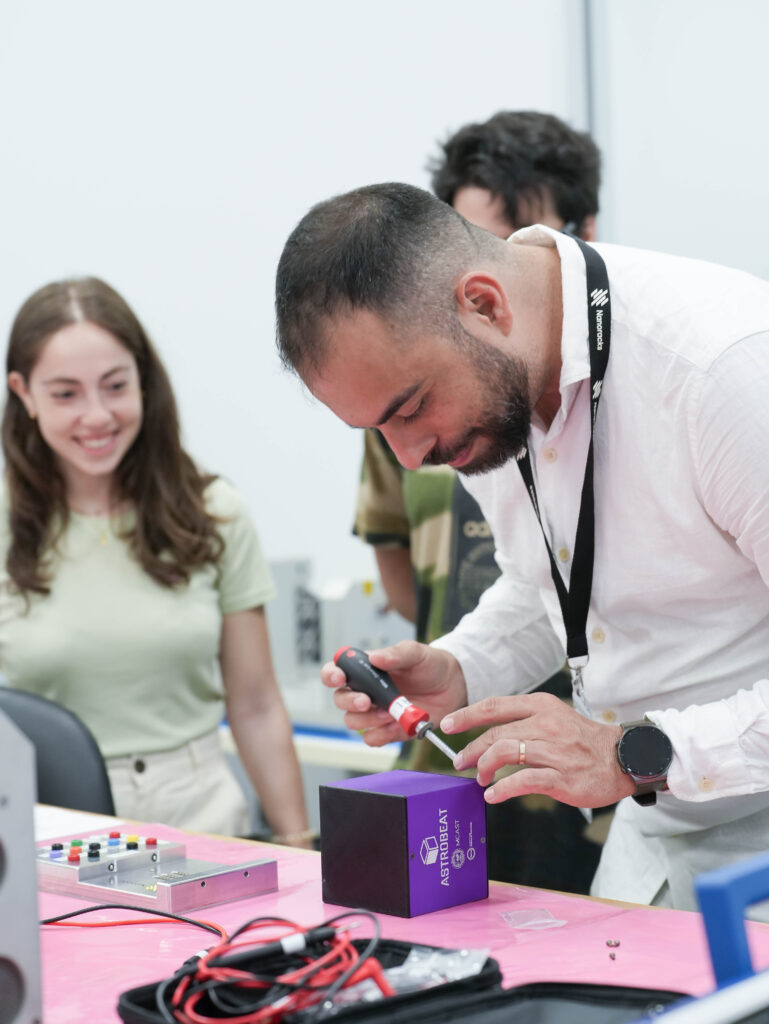
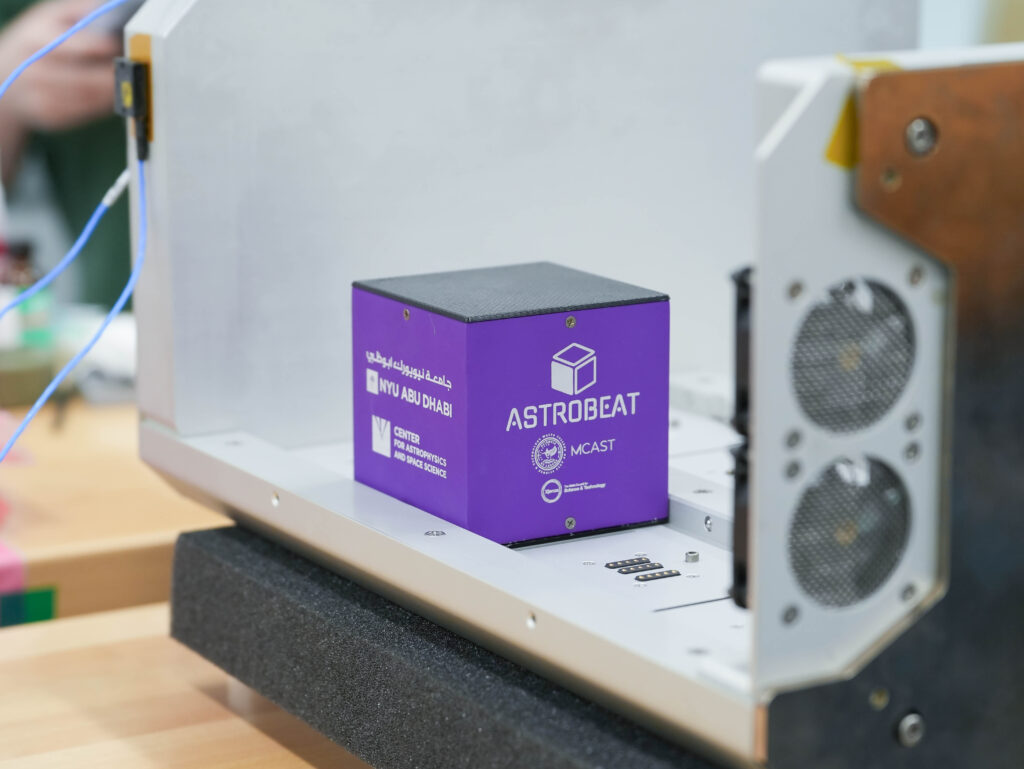
Dr Leonardo Barilaro with H.E. Ambassador Maria Camilleri Calleja
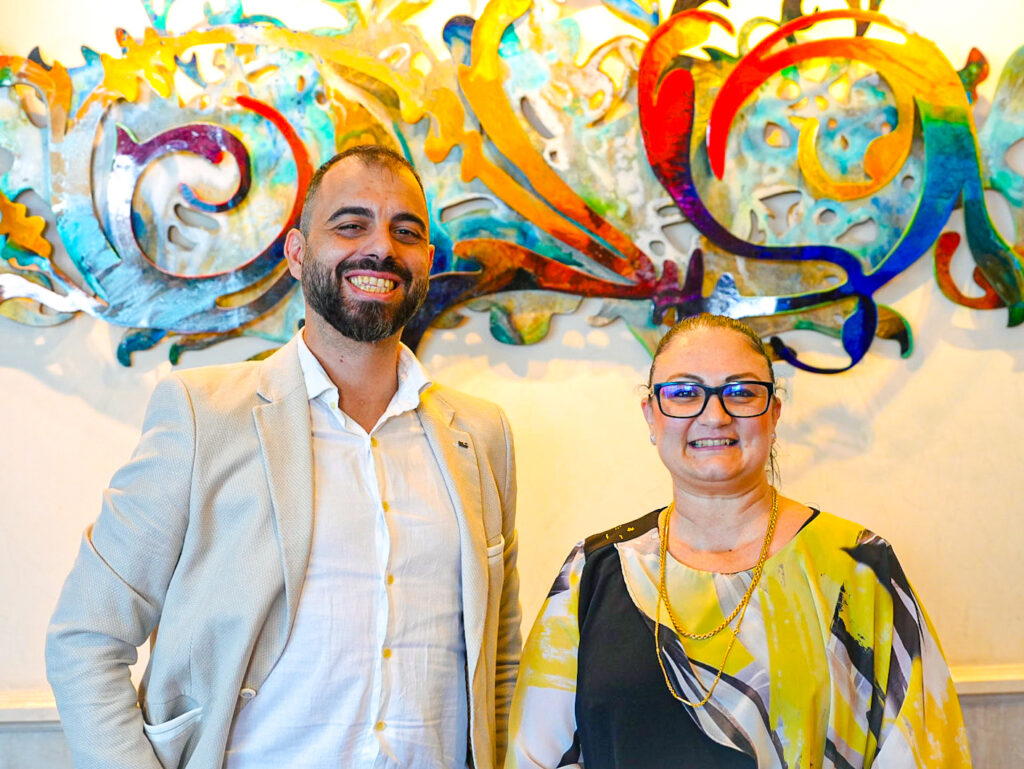
Dr Leonardo Barilaro
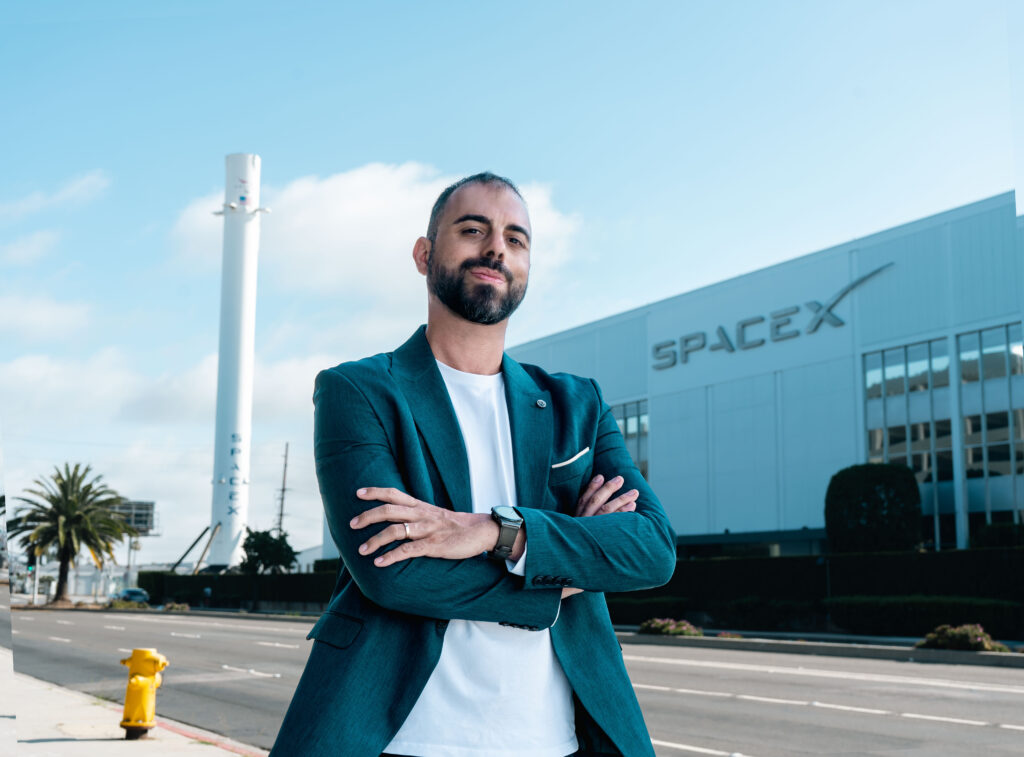

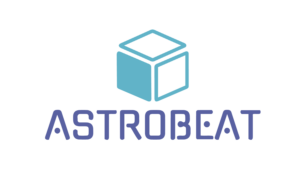
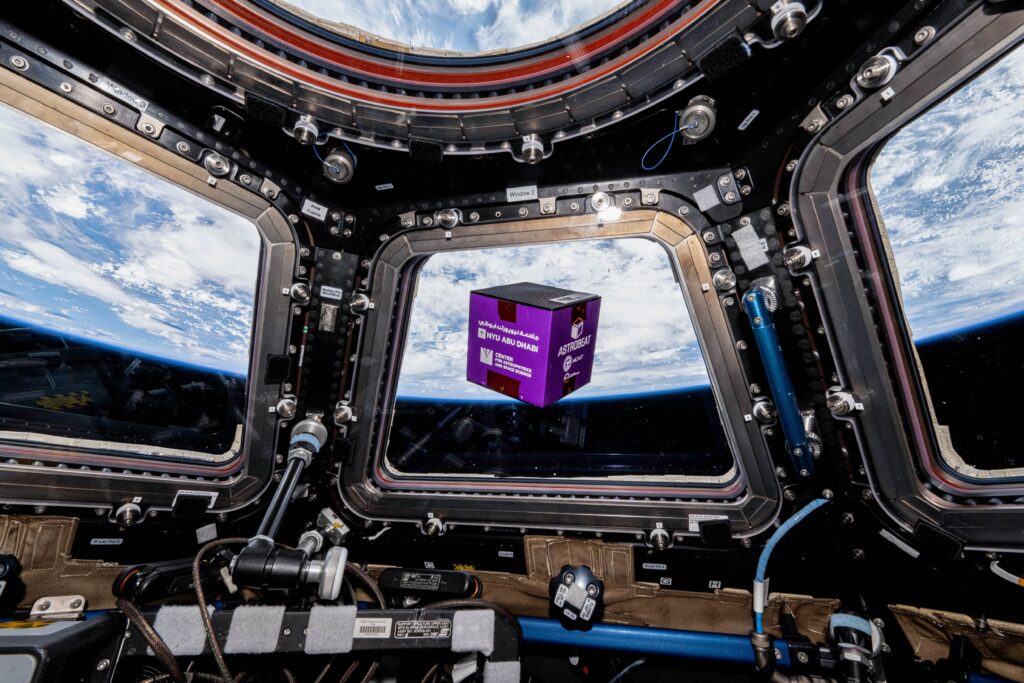
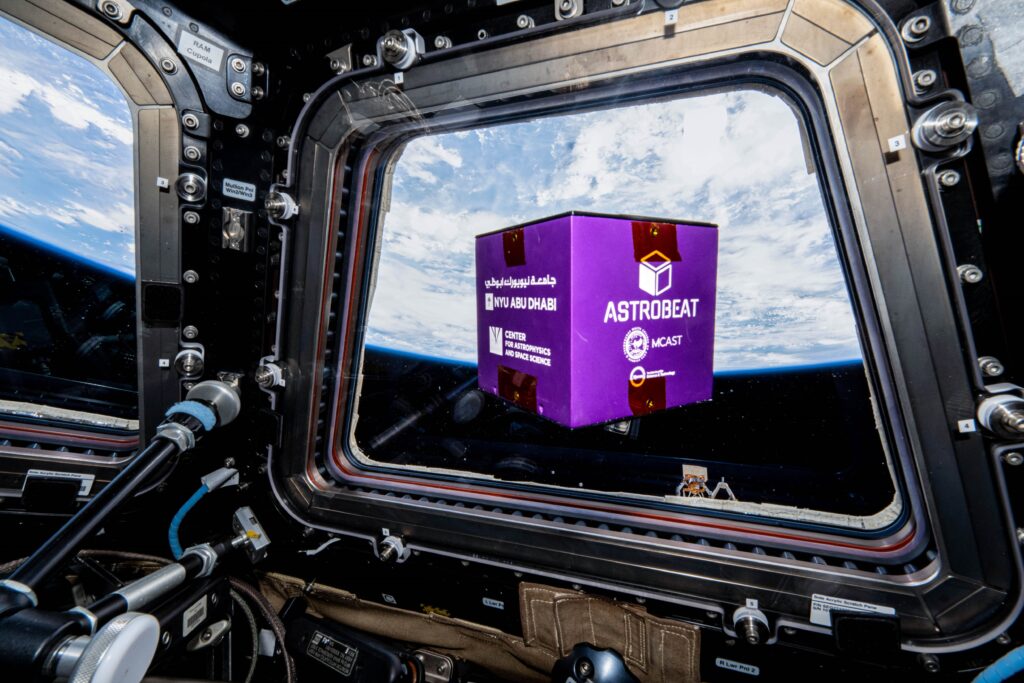
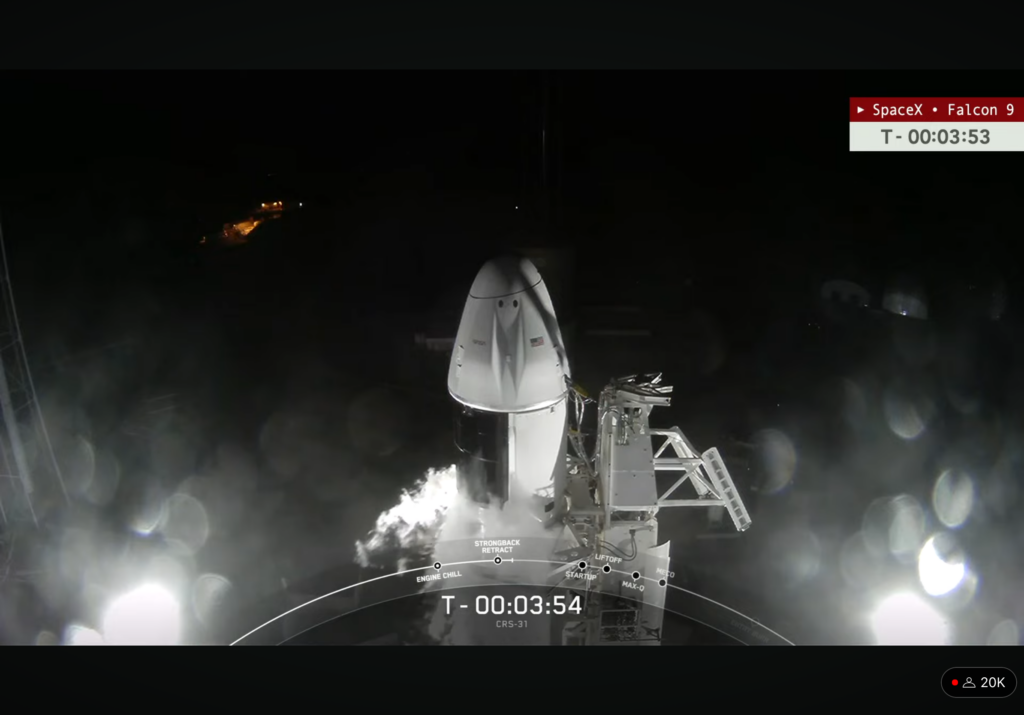
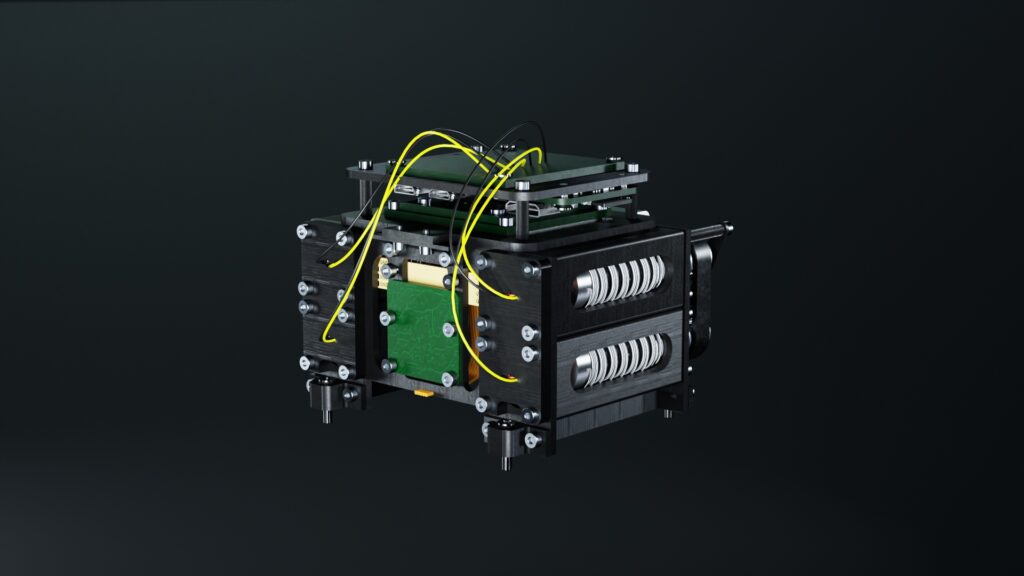


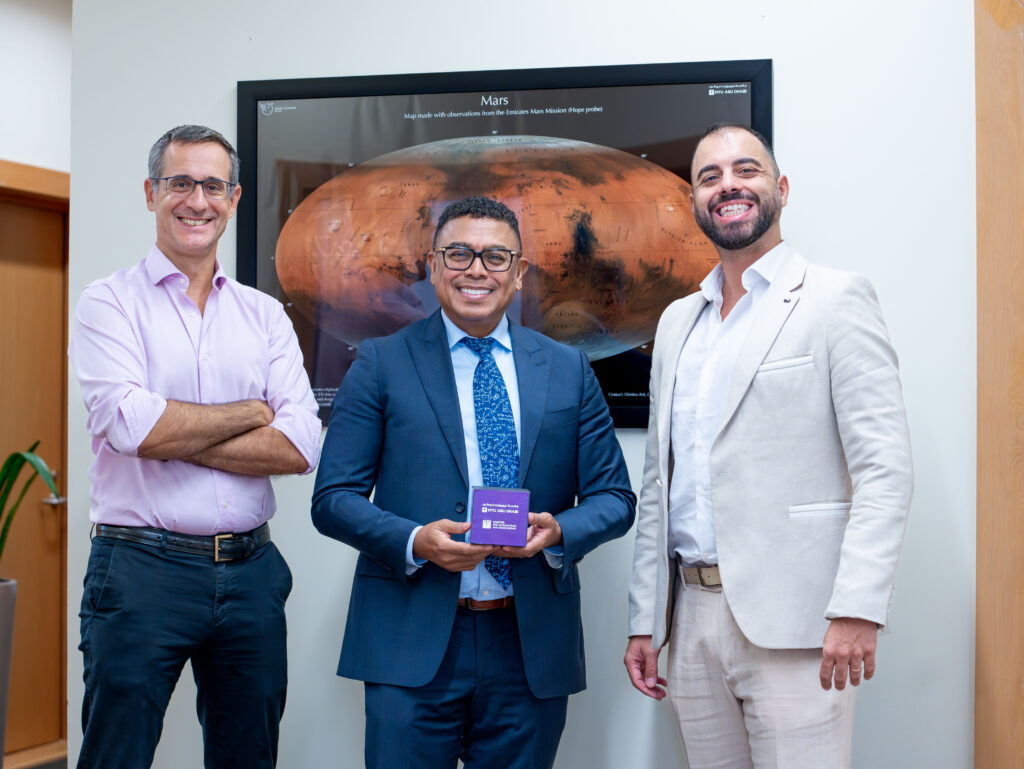
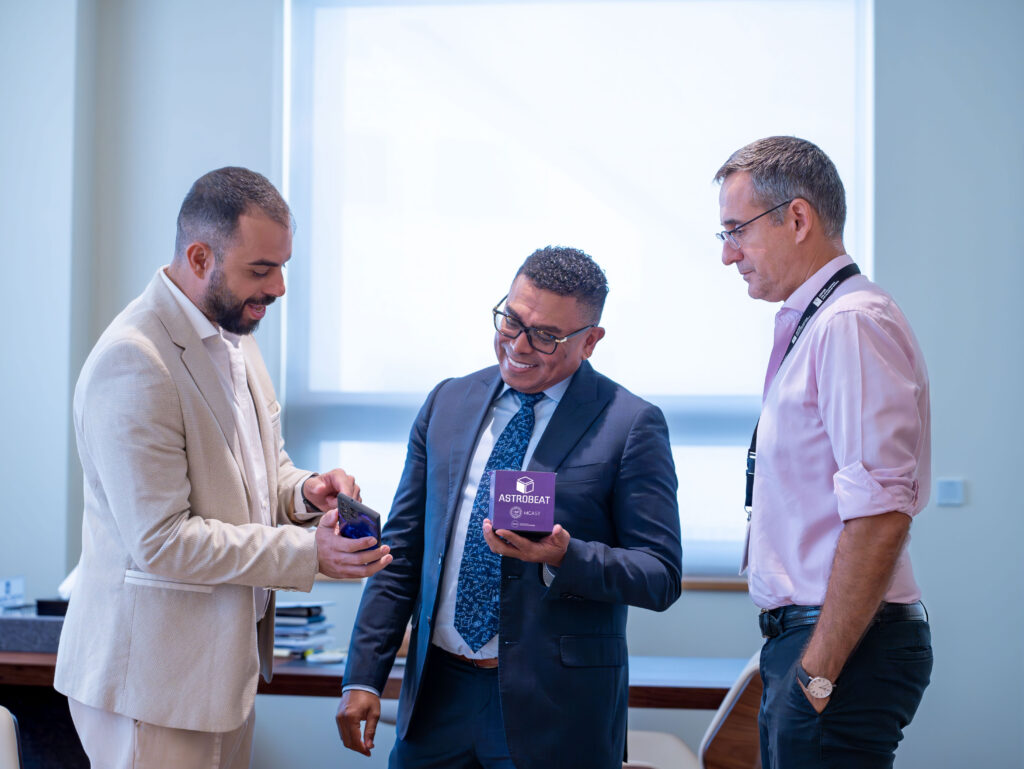
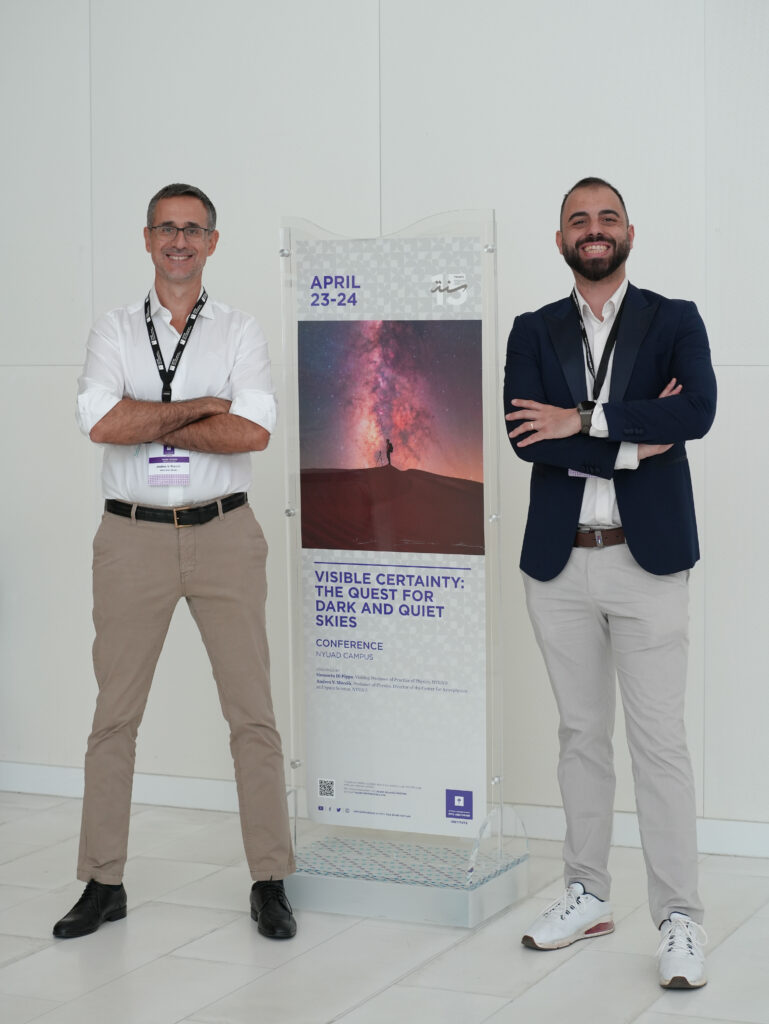





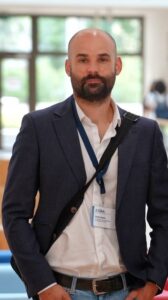









 MCAST Main Campus
MCAST Main Campus  +356 2398 7100
+356 2398 7100
 information@mcast.edu.mt
information@mcast.edu.mt